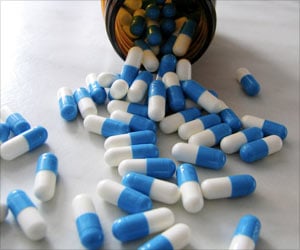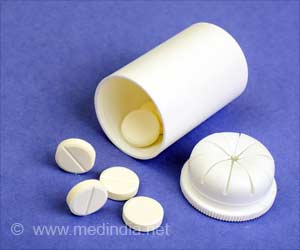A study released on Tuesday has suggested that an anticonvulsant drug prescribed for epilepsy seizures and migraine headaches may help alcoholics kick the habit by helping to wean them off the booze.
A study released on Tuesday has suggested that an anticonvulsant drug prescribed for epilepsy seizures and migraine headaches may help alcoholics kick the habit by helping to wean them off the booze.
The study showed that with the help of the drug Topamax, heavy drinkers were able to reduce their alcohol intake and increase the number of days they were completely sober in a matter of 14 weeks.The results suggest that the medication could be a useful tool for alcoholics when they need it most, when they are still in the grip of their addiction, and battling the cravings that drive them to the bottle.
"This is good news for people in crisis," said Professor Bankole Johnson, the lead author of the study who is chairman of the department of psychiatry and neurobehavioral sciences at the University of Virginia in Charlottesville.
"This is a drug that they can get from their family doctor, which means they could potentially be treated in the community, instead of having to leave their jobs and their families to seek treatment in a rehab facility as is often the case."
Johnson said that the drug, which is already being used off-label to treat alcoholism, appears to reduce the alcoholic's cravings by addressing neurotransmitter imbalances in the brain that have been induced by long-term alcohol abuse.
In his study, 371 alcoholics were enrolled in a 14-week trial -- all of them still drinking heavily on an almost daily basis.
Advertisements
Prior to the study, the participants reported that they were drinking heavily 80 percent of the time or 24 days out of every 30, with a mere three days a month where they were stone cold sober.
Advertisements
By the end of the trial, the volunteers who were given the medication had reduced their daily alcohol intake to just 3.5 glasses of wine a day, or 3.5 singles of scotch, or 3.5 cans of beer.
They reported that they were drinking heavily about 20 percent of the time, down from 80 percent, and they were chalking up a lot more days of sobriety -- 16 or 17 a month, versus three.
The placebo group also reported gains on all fronts, but the drinkers on medication were about four times more likely to have cut down on their daily alcohol consumption than their untreated peers and almost three times more likely to have reduced their heavy drinking days.
They were also up to twice as likely to have made gains with respect to days of sobriety.
The drinkers assigned the drug did report some side effects, including pins-and-needles sensations, fatigue, difficulty concentrating and headaches among other things, but the authors said the effects were mild compared to the side effects reported with other treatments for alcoholism such as Naltrexone or Acamprosate.
Johnson said the drug appeared to be safe and effective for the treatment of alcoholism and said a future study testing the use of the drug in community health care settings is in the works.
In an accompanying editorial, Mark Willenbring, an expert on alcohol addiction at the National Institute on Alcohol Abuse and Alcoholism, National Institutes of Health in Bethesda, Maryland, underscored the urgent need for treatments for alcohol addiction.
"Alcoholism dependence is the third leading modifiable cause of death in the United States, accounting for about 85,000 deaths per year. Reducing incidence, shortening the course, and reducing the severity of episodes are valuable and important goals."
"Reducing the public health burden will involve addressing the needs of a broader range of patients than can be treated by the specialty treatment system. In particular, it will be important to reduce disability caused by currently untreated episodes of dependence among those with the non relapsing form of the illness."
The study and the editorial appear in the Journal of the American Medical Association (JAMA).
Source-AFP
GAN /J











